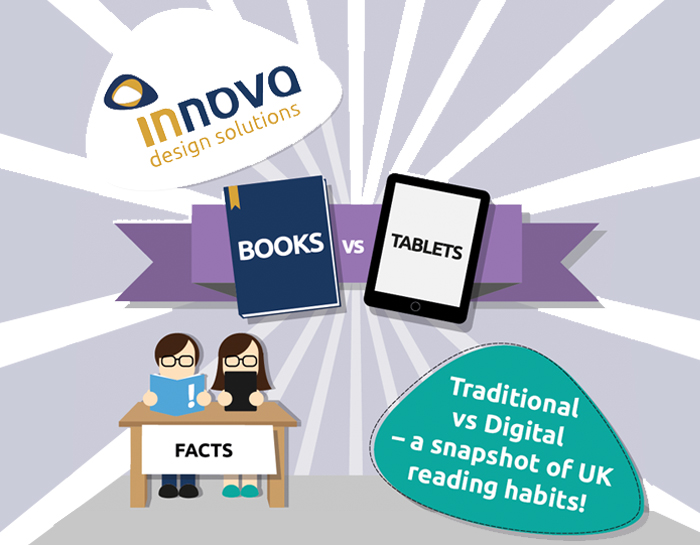Innova Releases Results of UK Reading Poll
Innova Design Group, a specialist in educational interiors, has released insights from polls examining the future of reading in the UK. The findings reveal a significant shift towards digital formats like eBooks and audiobooks, particularly among younger readers. Many respondents highlighted the influence of technology, emphasising its role in making reading more accessible. The results also indicate a need for educational spaces to accommodate both digital and physical materials while fostering a love for reading in children and teenagers through engaging programs.
Overall, these insights emphasise the importance of adapting educational environments to nurture literacy in a changing digital landscape.
The Results
According to the results, 82% of the British public voted for books while just 18% of respondents preferred tablets.
Despite perceptions that fiction titles are a staple of the e-reader, 47% of respondents said they were most likely to read fiction in print while just 31% of people said they were most likely to read non-fiction titles in print.
Perhaps most surprisingly, just 22% of people said they were most likely to read an academic title in print.
Melanie Laing, director at Innova, said: “2015 was a contradictory year for reading. On one hand it was the first year in history that ebook sales fell both globally and in the UK – but on the other, technology giant Apple claimed it was adding about 1 million new iBooks users a week globally.
“To gain insights into the passions and desires of British readers we conducted this series of polls and the results are illuminating. Books clearly win the hearts of the public. Indeed they are four times more popular than tablets according to the poll. So the longevity of books is clearly something readers feel passionate about.
“While people wear their love of books as a badge of pride however, their long-term behaviour tells us that they are buying tablet devices and downloading ebooks. People swear by print but their homes, lives and digestion of content are becoming increasingly digital.”
With the nation’s reading habits evolving and with several examples in the USA – Innova also asked if bookless libraries could soon become a reality in the UK with 32% of respondents saying that they could and 68% disagreeing.
“Given that bookless libraries don’t currently exist in the UK, and the very concept would have been new to many of those polled, the 32% figure is actually quite high.
“From our experience in the education sector, the evidence suggests that reading is evolving. Technology and print are presently working alongside each other, so bookless libraries are quite a bold concept. But as younger people who have grown up in the smart phone era enter the consumer cycle, the shift towards digital will gather pace.
“As the first point of contact for tech savvy younger learners, we predict that schools, colleges and universities will produce the first UK bookless libraries within a generation as they adapt to keep pace with modern ways of digesting information.”




